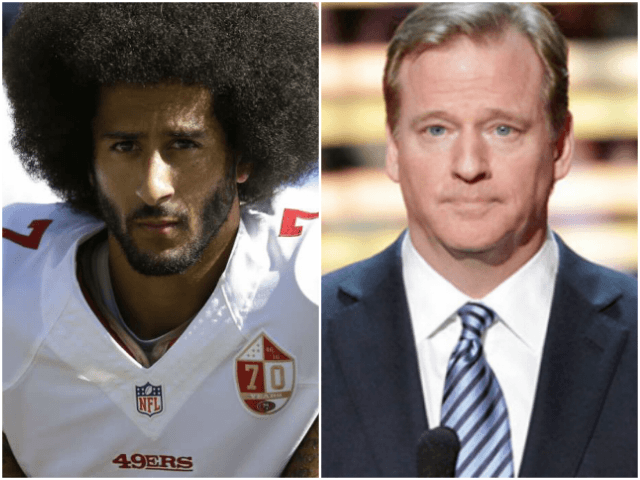A surge in NFL revenues for the 2017 season, has caused many in the left-wing sports media to claim that the higher earnings prove that the anthem protests had no actual effect on the bottom line. However, much of the “proof” for this contention is suspect.
According to ESPN, “the NFL distributed more than $8 billion in national revenue.” The report also found that each team received $255 million, a 4.9 percent revenue increase over last year.
All this comes from a financial report filed by the Green Bay Packers. The league stopped requiring the release of these types of financial disclosures in 2015, after the the NFL gave up its tax exempt status. However, since the Packers are a publicly traded company, they have to release the information by law.
The finances are sunny, Sporting News claimed. The site even wrote that claims that the league is hurt by anthem protest are a “lie.”
According to the Sporting News, “the NFL’s bottom line wasn’t affected in 2017 by anthem protests and shaky TV ratings.” It ultimately
SN concluded,”Packers president Mark Murphy said, many owners’ dire warnings that it would be a tough season financially, in particular, because of the controversy surrounding protests during the national anthem, didn’t reflect in the league’s income.”
For its part, Pro Football Talk insisted that the revenue went up “despite declining television ratings.”
But the celebration over the NFL’s revenue may not be exactly what it seems.
First of all, much of the league’s revenue is based on TV earnings.
According to Statista, about 50 percent of the league’s revenue is brought in by TV rights deals contracts. The deal with ESPN is reportedly worth 15.2 billion through 2021:
The National Football League as a whole generated more than 12 billion U.S. dollars in revenue in 2015. More than 50 percent of the revenue is attributable to television rights deals, as the average annual amount of money coming into the league from these deals exceeded 7 billion U.S. dollars. Other important streams of revenue for the NFL, besides TV rights, are sponsorships and gate receipts.
The thing is, though, these earnings are from TV contracts that were negotiated well before the anthem protests began. Further, these contracts are guaranteed through the 2021 season.
In other words, any financial impact suffered by the league due to ratings losses, would show up in any financial reporting before the 2022 season.
Indeed, even Pro Football Talk notes that there just could be trouble on the horizon after these 2022 contracts come up for re-negotiation. “A sustained decline in the league’s TV ratings could eventually cause the league’s revenues to decline, but that’s highly unlikely to happen before 2022 when the current TV deals expire,” the site said.
To counter this inconvenient truth, many point to the growing revenue realized by the Green Bay Packers. Though, the Packers are not a very good example to judge revenue across the league as it might be impacted by anthem protests.
First of all, other than quarterback Aaron Rodgers’ ill-fated attempt to get the entire Lambeau crowd to join together and link arms during the anthem, the Packers didn’t really have any significant incidents of anthem protesting. In fact, Packers coach Mike McCarthy gives an annual PowerPoint presentation to his players explaining the history of the anthem and proper decorum during its playing. Giving Packer players yet another incentive to not involve themselves in the protests.
So, “Packer Backers” would be among the least likely NFL fans to financially punish their players for anthem protests. Therefore, using Green Bay’s earnings to make a point about how anthem protests have not hurt the league, doesn’t make any sense.
In addition, the Packers have a notoriously rabid fan base that has proved as giving with their wallets as they have with their fandom. Another factor which suggests that revenues in Green Bay would always be high regardless of the financial realities in the rest of the league.
We have already seen half-empty stadiums, dropping ticket prices, and fans leaving pro football behind. But what we have not yet had the opportunity to see is the effect on the bottom line outside the television contracts already set in stone. We may have to wait and see what might happen to the league once all this guaranteed revenue comes to a contractual end.
However, if the NFL doesn’t turn its ratings decline around soon, that 2022 television contract could look a lot leaner than the one they signed nearly ten years ago.
Follow Warner Todd Huston on Twitter @warnerthuston.

COMMENTS
Please let us know if you're having issues with commenting.